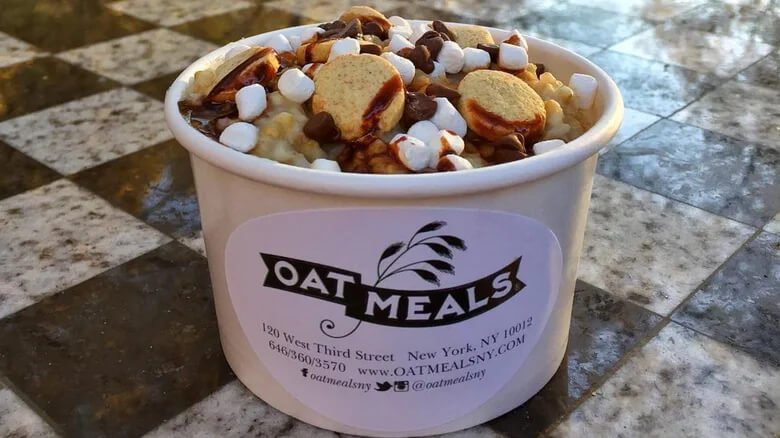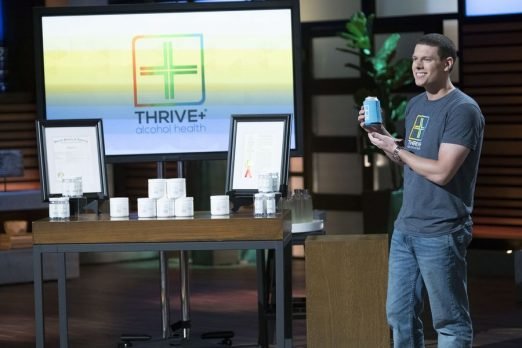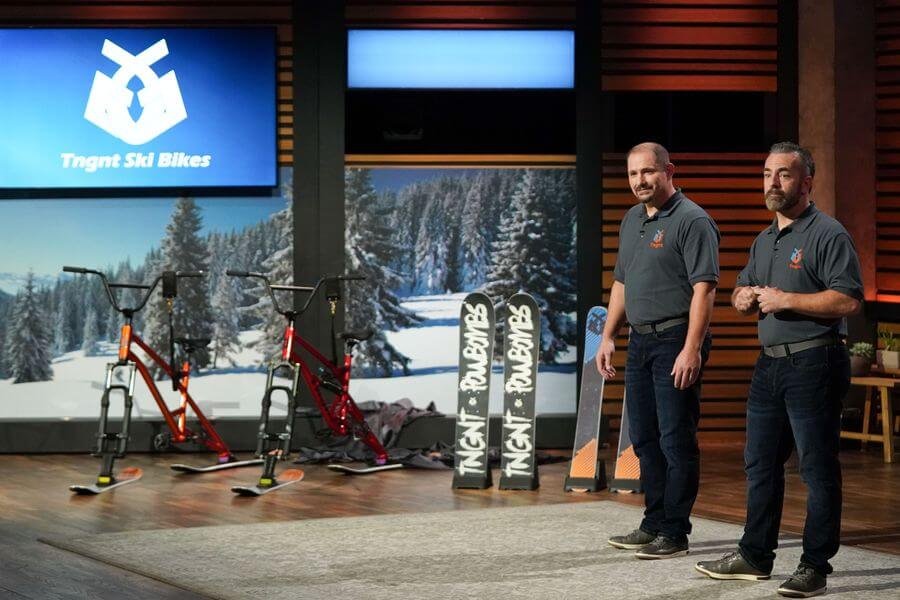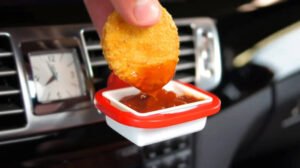Here’s a classic Shark Tank setup: Founders pitch, Sharks bite, camera cuts, and everyone assumes the future is golden. But how many of those handshake deals on TV turn into real money in the bank? That’s the million-dollar question. Today, we’re talking OatMeals—one of the most unique concepts to walk into the Tank, and a business that proves sometimes, a great idea and a killer pitch still isn’t enough.
Contents
ToggleThe Guts Behind OatMeals
Samantha Stephens made waves by betting everything on oatmeal—yes, oatmeal. She’s not selling your standard quick-mix, microwave mush. This is oats reimagined as a business, a brand, and almost a cult following. Years after her Shark Tank episode, OatMeals is still a conversation starter. Here’s the story, minus the PR fluff, about what really happened after that Shark Tank spotlight.
Samantha Stephens: From Wall Street Comfort to Startup Grit
Let’s get real—most people don’t leave a stable finance career in New York for a risky food startup. But that’s exactly what Samantha Stephens did. She wasn’t some chef coming up from the line at a restaurant. She was a financial analyst with a good salary, a clear career ladder, and all the security that comes with it.
But real entrepreneurs see opportunity where others see comfort. She spotted a gap—no one was treating oatmeal like a customizable, restaurant-level experience. Most folks talk risk, pretend to dream big. Samantha actually walked away from the cubicle, spent nights and weekends studying baking and business, and opened shop in a city where food rents alone can end you before you begin.
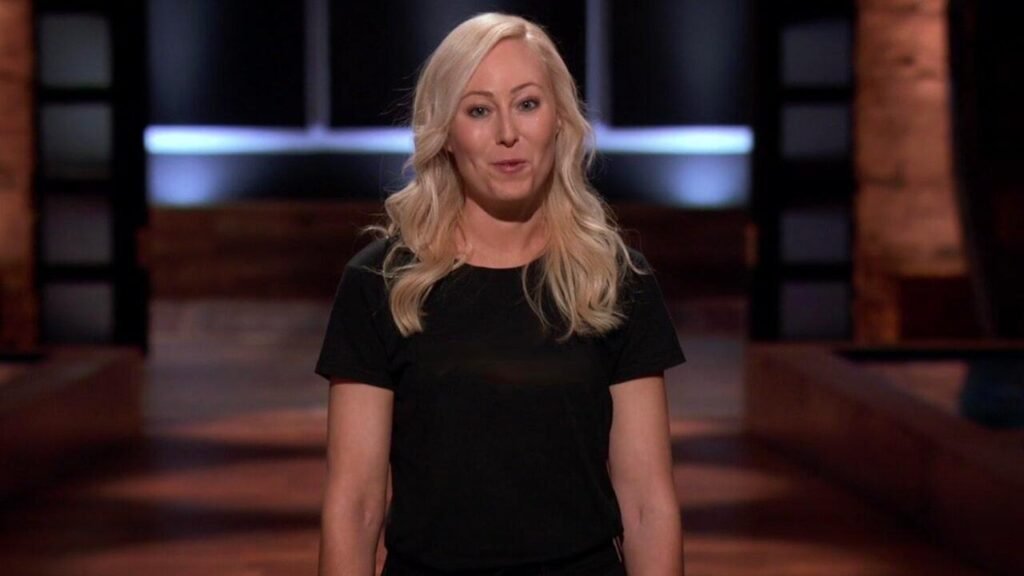
The OatMeals Concept: Oats With Swagger
Now, OatMeals wasn’t just another breakfast joint. Forget what you know about oatmeal. Stephens baked in toppings like bacon, cheddar, figs, truffles, or maple cream. You wanted savory? Sweet? Vegan? Done. She took the base product everyone thinks is boring, and made it anything but.
This wasn’t your grandma’s breakfast cereal—it was a 380-square-foot oatmeal bar in the heart of Manhattan’s West Village. Most days, the line was out the door. PR hits stacked up. Everyone in the local press wanted a taste.
OatMeals was scrappy and creative, but the big question loomed: Could it scale, or was it just a quirky NYC hit?
OatMeals Shark Tank Pitch: What Really Went Down
Stephens made her Shark Tank appearance in Season 10, pitching the OatMeals vision to a room full of sharks with famously short patience for fluff. The ask was bold—$500,000 in exchange for 20% equity, setting the company’s valuation at $2.5 million.
Presentation mattered: she brought samples, told her story, and didn’t stumble under pressure. The sharks tasted. Reactions cut quick—flavors wowed them, and the tiny shop’s lifetime revenue, clocking in at $2.5 million, was nothing to sneeze at.
But the real conversation was about profit and scalability. I’ve watched a lot of founders focus on topline numbers and ignore the ugly math of operations. Stephens had strong sales for a single store, but with slim margins and New York rent, the hustle was always uphill.
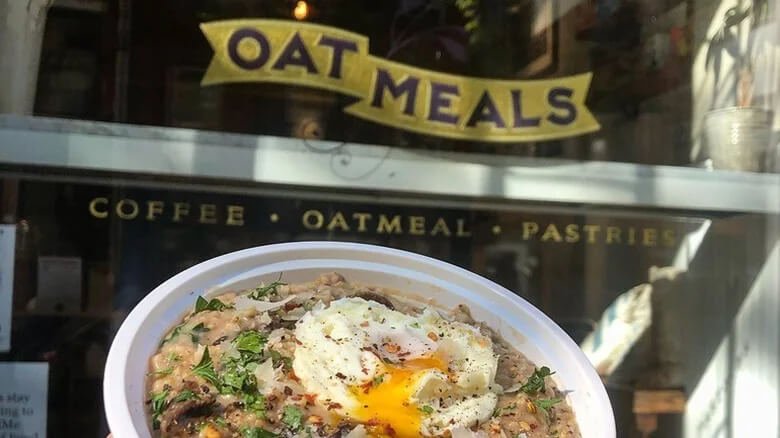
Net Worth: Was OatMeals Worth the Bet?
Let’s gut-check that $2.5 million valuation Stephens pitched. Six years in, $2.5 million total sales, forecasting $500,000 for the current year, but profits? Tight. This wasn’t a Bombas situation where the margins fuel rapid scale.
On SharkWorth, OatMeals’ net worth post-show was generally pegged around the valuation Stephens set, but only if the dream of expansion materialized. Hard to justify high seven figures for a single tiny store, no matter how many Instagrammers love it.
Valuations are just stories until cash hits the bank. OatMeals had the numbers for buzz, not for fast investor payback. Daymond John did the math out loud—twelve years just to get a return—so you know it wasn’t adding up for most Sharks.
If you’re asking now what OatMeals is worth, post-shutdown, it’s a different equation. The brand, the recipes, and (importantly) Samantha’s personal hustle—those assets might be worth something. But the brick-and-mortar dream? That door closed.
Sharks’ Take: Who Bit, Who Didn’t—And Why
Here’s where the dealmaking really happened.
Kevin O’Leary shook his head—he didn’t see enough cash leftover for investors. No Kevin Mr. Wonderful royalty deals here.
Daymond John respected the grind but said the simple truth most founders don’t want to hear: your cash is tied up, and payback is too slow.
Barbara Corcoran actually got creative. She’s the NYC real estate queen, so she pitched a pivot: kill the sit-down store and take OatMeals to the streets. Food carts, lower overhead, quick expansion. But she wanted 50% for $500K.
Lori Greiner saw a different angle—the grocery biz. She liked the branding, saw a path to licensing or selling OatMeals in stores. She dropped a real offer: $500,000 for 33.3% equity. Fewer strings, more scale.
Here’s the truth: I’ve seen plenty of founders freeze up when they get competing offers. Stephens stayed sharp and took Lori’s deal. That’s the sort of cool-headed move that wins Shark Tank rounds.
Life After Shark Tank: Deal or No Deal?
Let’s bust the biggest Shark Tank myth: deals in the Tank don’t always close. In fact, plenty of the celebrity handshake moments start unraveling as soon as the cameras go off and the due diligence starts.
That’s what happened here. On air, Stephens landed the $500K-for-33.3% deal with Lori Greiner. Off air, the paperwork stalled. Differences on expansion, logistics, franchising, you name it—the final deal never got signed.
If you check SharkWorth or follow the OatMeals posts, you’ll see: no OatMeals franchise explosion. No new locations, no grocery aisle oatmeal cups. Typical post-Tank fizzle. It’s no knock on Stephens or Lori—that’s just the high-stakes world of dealmaking with TV hype.
COVID and Closure: What Really Brought OatMeals Down?
Here’s where the story gets tough. OatMeals’ single location was always its weak spot—great brand, but one rent check away from disaster. When COVID hit New York in 2020, foot traffic died, costs stayed high, and the math just broke.
In January 2021, after nine gritty years, Stephens closed the doors for good. The pandemic didn’t just hurt profits—it killed their main channel. OatMeals had already tested catering, pop-ups, and online recipes, but the sit-down shop was the beating heart. When that stopped, so did the business.
And let’s drop the idea that a Shark Tank feature is a golden ticket. If COVID can wipe out Le Pain Quotidien, it’s going to hit a 380-square-foot independent hustler even harder.
Legacy and Next Moves: Is There a Second Act for OatMeals?
So is OatMeals gone forever? Not quite. Samantha might have lost the shop lease, but the brand and recipes are alive online. She’s kept posting oatmeal recipes on the OatMeals Facebook page and sells small-batch granola from her website.
She talks openly about bringing OatMeals back in a different format. Food, after all, is about more than bricks and mortar. Maybe there’s a subscription box future, or a collab with a bigger brand. Real operators never really quit—they tweak, test, and try again.
The real OatMeals legacy? It’s not the store or even the Shark Tank appearance—it’s Samantha’s lesson for other founders. Don’t assume TV magic, don’t chase valuation for cameras, and always stay ready to pivot.
FAQs: Real Answers, No Spin
Is OatMeals from Shark Tank still in business?
No, the NYC shop closed in January 2021. There’s talk of future products online, but the storefront is gone.
Did Lori Greiner’s deal actually happen?
No. On TV, yes. In the real world, post-show, that deal never closed.
Why did the OatMeals NYC shop shut down?
COVID killed retail foot traffic, and without in-store sales, the shop couldn’t survive Manhattan rent.
Can you still buy OatMeals products anywhere?
Check Samantha’s online channels—granola and oatmeal recipes are still available, but no brick-and-mortar sales.
How much did OatMeals make before closing?
Before the shutdown, OatMeals topped $2.5 million in six years, with about $500,000 projected for the last year.
What happened to Samantha Stephens after OatMeals?
She’s still in the food game, building her personal brand, and keeping OatMeals alive through social.
Did OatMeals ever expand beyond its NYC spot?
No. All efforts to franchise or scale up stalled post-Tank and especially after COVID.
What made OatMeals stand out on Shark Tank?
Creative recipes, passionate founder, and the guts to turn boring oatmeal into something buzzworthy.
The Real Take: What OatMeals Teaches Founders
OatMeals on Shark Tank is a lesson in both hustle and heartbreak. You can have an original idea, a charismatic founder, and big moments on national TV. But at the end of the day, the small business game is brutal. Sometimes, the hand you’re dealt survives a Shark Tank feeding frenzy… and sometimes, it can’t swim.
Check more stories like this on SharkWorth, and remember—if you’re a founder, it’s all about learning, pivoting, and never betting the farm on a handshake. The grind is real. OatMeals proved it—one bowl at a time.

